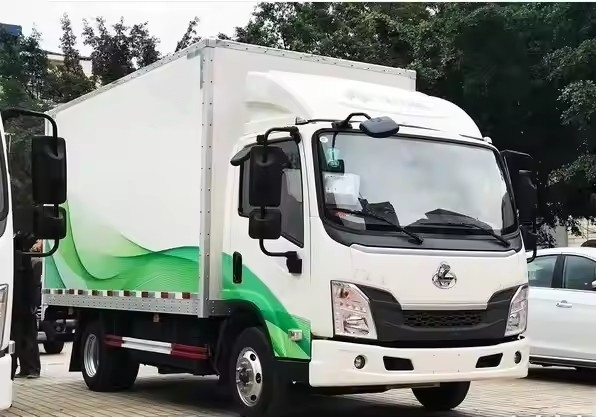The reduction in the range of electric vehicles during winter can mainly be attributed to the following reasons. Low temperatures have a negative impact on battery performance. Both the charging and discharging efficiencies of batteries decline at low temperatures, leading to increased energy losses and thus a reduction in the driving range. In winter, the […]
Category Archives: Electric Truck News
With the growing global concern for environmental issues and the pursuit of sustainable development, electric vehicles, as an environmentally friendly and energy-efficient mode of transportation, are increasingly favored by more and more people. Why are electric vehicles selling like hot cakes? The following will answer some common questions to help you gain a better understanding […]
The intelligence of electric vehicles refers to the utilization of advanced science, technology, and information technology, enabling electric vehicles to possess more intelligent functions and handling capabilities. Intelligent electric vehicles can offer a more convenient, efficient, and safe driving experience, thus promoting the development and popularization of electric vehicles. The following will answer some commonly […]
There are three main reasons why the motors of low-speed electric vehicles are small. Firstly, low-speed electric vehicles are generally used for urban transportation, where the driving speed is relatively slow. Consequently, the power requirement for the motor is relatively low. A smaller motor can meet the needs of low-speed driving, and at the same […]
Electric vehicles, as an environmentally friendly mode of transportation with great potential for future development, have gradually drawn people’s attention and favor. However, some may have encountered a common problem – why do electric vehicles consume electricity more rapidly when driving at high speeds? The following will provide a detailed explanation for this issue. Question […]
The reason why the profits of electric vehicles are so high mainly lies in the following aspects. Firstly, the innovative technologies of electric vehicles result in relatively high costs, which in turn expand the profit margins. Compared with traditional cars, electric vehicles need to adopt advanced technologies such as batteries and electric motors. The research, […]
Question 1: Why Are There No Air Intakes in the Front of Electric Vehicles? There are several reasons why electric vehicles lack air intakes in the front. Firstly, the power systems of electric vehicles differ from those of traditional fuel-powered cars. Electric vehicles draw power from electric motors instead of internal combustion engines. Unlike traditional […]
Pure electric vehicles are vehicles that use electric motors as the main driving force. Compared with traditional fuel-powered vehicles, there are some significant differences in their power systems. One of the important differences is that pure electric vehicles usually adopt automatic transmissions rather than manual ones. Why do pure electric vehicles use automatic transmissions? Let’s […]
Question 1: Why Do Electric Vehicles Have So Many Power Failures? There are multiple reasons for the relatively high occurrence of power failures in electric vehicles. The power systems of electric vehicles are more complex compared to those of traditional cars. They involve multiple components such as electric motors, batteries, and electronic control systems, each […]
Pure electric vehicles have been attracting more and more attention and popularity due to their unique performance and advantages. So, why are pure electric vehicles easy to drive? Pure electric vehicles do not use traditional internal combustion engines, which can reduce pollutant emissions and are thus environmentally friendly. The power systems of electric vehicles are […]








